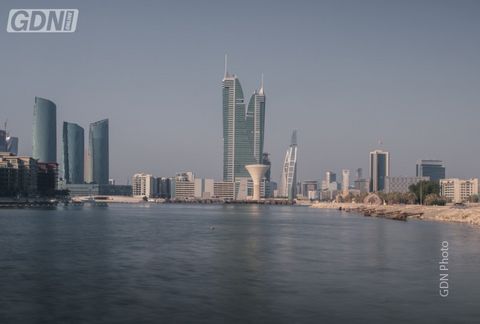Bahrain’s real GDP to top 10-year high of BD13bn

Bahrain’s real GDP is set to post the highest figure seen in a decade, exceeding BD13 billion ($34bn) in 2022 and 2023, according to SICO, which says non-oil GDP growth and greater private sector contribution towards economic activities will be the main drivers.
Sharing insights into Bahrain’s economic and fiscal recovery in a comprehensive report titled ‘Bahrain Special – Between achievements and acceleration towards targets’, the asset manager, broker, market maker and investment bank said oil sector GDP is expected to be around BD2.3bn for 2022 and 2023.
The non-oil GDP estimates are BD10.9bn for 2022, rising to BD11.2bn in 2023.
The report indicates tangible progress in Bahrain’s economic recovery plan and fiscal balance, saying coming out of a pandemic that had its adverse impacts on the economy for the past two years, the kingdom has shown recovery in 2022, and more disciplined spending over the last five years.
It sheds light on the progress of the fiscal balance programme against the targets set, as well as the risks and challenges that Bahrain might face.
Noting that 2022 can be best characterised as a year of acceleration and diligent movement towards crucial targets set for achieving fiscal balance by 2024, it highlights that the accelerated economic recovery contributed positively towards lowering the unemployment rate to 5.2pc in 2022.
Furthermore, narrowing gaps between public and private sector wages resulted in higher employment in the private sector.
Looking back at what has been achieved so far and what is yet to be accomplished allows for the conclusion that the past year was one of post-pandemic transition, acceleration, and a realisation of the ever-pressing demands that the government faces on the road to fiscal balance.
Bahrain has released its preliminary fiscal numbers for the year 2022 reflecting a deficit of BD178m compared to a deficit of BD952m in 2022.
Non-oil revenues were 28pc higher YoY crossing BD1bn to reach BD1.065bn in 2022. This comes mainly because of Bahrain’s VAT hike to 10pc in 2022.
Fiscal discipline and improving non-oil revenues due to the introduction of taxation over the last five years led to narrowing deficits, the report says.
The government’s prudent management of recurrent expenses translated into a decline in expenditure for two main recurrent categories: the wage-bill and subsidies.
Meanwhile, the key challenge for the government remains in managing its debt service cost.
Increasing risks of higher interest rates, mounting inflationary pressures, and growing competition all add to the heavy demands on Bahrain’s government to balance prudence, while ensuring consumers and vulnerable families are supported.
With one year to achieve fiscal balance as per the national target (by 2024), building on the achievements the government has made so far will allow for successful acceleration towards the targets.
Source: https://www.gdnonline.com/Details/1195784


